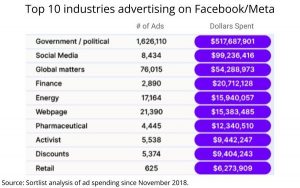— May 20, 2019
If you’re looking for a more effective way to build relationships with business partners, generate high-quality business leads, and boost your profits, you might want to consider offering finder’s fees.
Finder’s fees are a type of commission that can range from small, informal gifts to much more significant amounts of money. Regardless of the monetary value of the compensation, a finder’s fee is paid by a company or individual to an unaffiliated “finder” who produces desirable new leads to a business entity – and hopefully generates more revenue by turning those leads into customers.
Finder’s fees hinge on the premise that without the finder interceding on behalf of the company, the resulting sale or business deal would not have happened. This is why you use a finder’s fee, when a simple “thank you” note won’t suffice, a finder’s fee might be the best way to reward the person who introduced you to your new best customer.
While paying finder’s fees is a great way to reward your peers and partners for new business opportunities, it should be done deliberately and systematically so that all the parties involved stay motivated to continue to do business together.
What’s in a finder’s fee agreement?
Should your company decide to offer finder’s fees, it’s best to get all of the important details in writing in a finder’s fee agreement. Once you’ve established and agreed to the ground rules, it will make it easier to proceed.

Ideally, this will prevent any confusion and/or potential disputes by ascertaining and clearly stating the terms and conditions of the arrangement. The finder’s fee contract doesn’t have to be too complicated, but should address at least some of the following questions:
- Who is the finder and who are they referring?
- Who pays for the finder’s fee
- Is the finder’s fee a lump-sum payment or will it be issued in installments over a specified duration?
- When is the transaction considered to be initiated and when is it considered to be complete?
- Are you paying for each lead/opportunity, or is the compensation contingent upon a sale or new business deal?
- If it’s a percentage fee, how much does the finder get?
- What is the duration of the agreement?
It’s important to carefully consider these aspects in the finder’s fee agreement and to make sure that both parties are meeting the requirements of the agreement.
Here are some finder’s fee examples
Finder’s fee payment arrangements
Finder’s fees are always discretionary and not legally mandated, and with a few exceptions, they are not widely regulated. Even businesses in the same industry might have markedly different practices about paying finder’s fees.
Managing the costs of referral fees
Finder’s fees are not always factored into the price of a product or a service. If your finder’s fee is quite substantial, that could lead you to increase the price of your product/service, and might ultimately dissuade potential customers from buying from you.

Unlike some other operating expenses that can be budgeted for and planned in advance, such as an advertising campaign or a promotional event, a company’s referral business can be irregular and unpredictable.
The turnaround time from a new lead introduction to finalizing a sale can be several months or even years, depending on the nature of the product/industry, especially for complex major account B2B lead generation.
Paying too much for finder’s fees is a possible pitfall of the practice. While the prospect of a large reservoir of new sales leads can be enticing, companies need to be wary of what they are spending on finder’s fees.
If a company is being too generous with its freshly-sourced profits, it is in danger of doing a lot more work or shipping more products for substantially less money. Most businesses would be wise to consider referral incentive programs as a supplement to their in-house sales/marketing departments and not the primary or exclusive driver of new business leads.
Again, there are innumerable variables to ponder, as no two businesses are alike, but paying top dollar for unproven leads will always carry the risk of an uncertain return.
Common conditions of finder’s fee agreements
Eventually, it comes time to close the deal or make the sale, but not all referral business is equal. While it might be great news for your company’s sales team to know that your third-party affiliates or trusted business partners are referring new contacts to your company, not all of those contacts will necessarily yield a game-changing new business deal.

Depending on what services and/or products you sell, it might be more pragmatic for the business to pay out a finder’s fee based upon a percentage of the sales that are generated by the new customers, instead of a flat rate for each new account. Furthermore, if the finder merely furnishes the lead to the company, their fee should be lower than a finder who does the same but also continues to work beyond that on the project/transaction.
It’s also possible that your company could establish a finder’s fee agreement with a third-party affiliate who, instead of agreeing to help achieve any specific sales outcomes or generating a number of new leads, merely agrees to introduce you to their network. Using the right components for your finder’s fee agreement can be valuable depending on the quality of the network and the credibility of the finder who is making the introductions.
Things that can go wrong with a finder’s fee agreement
One of the most immediate risks of a finder’s fee agreement is: what happens if the sales leads turn out to be low-quality or poorly qualified? If the finder stands to get paid regardless of the outcome of their contact placement, an unscrupulous finder might be less than thorough in researching their contacts before introducing them to your company.
This means that you could end up being obligated to pay for a large number of low-quality leads that never convert to sales. This may be an instance of when not to pay a finder’s fee.
If you’re getting low-quality sales leads, or too much “clutter” in the form of high-quantity but poorly qualified leads, it might be time to locate a new finder or adjust the terms of the contract so that you’re not paying for lackluster leads.
Another risk when paying finder’s fees is that a company might fail to stay on good terms with their finder or third-party affiliate, and the business relationship might even end. This could result in a situation where a once-reliable source of new business opportunities starts supplying leads to the company’s competitors instead. Unless there is a specific “non-compete” language in the finder’s fee agreement that prohibits this, your steady flow of new business referrals could screech to an acrimonious halt.
SSM is an example of one of the lead generation companies in the market where instead of a finder’s fee, they get paid hourly for the sales efforts being performed and remove the commission type structure. Finders are just like any other business partner, vendor or supplier: it pays to keep the good ones happy!
In conclusion
If a company can establish a fair and consistent protocol for paying finder’s fees, finder’s fee agreements can be an incredibly valuable way to reach new customers, gain access to new markets, and/or secure new business deals.
After all, if a company has a mutually beneficial relationship with a well-connected community member or social media influencer, that can have a big impact on its bottom line. For any company trying to stay competitive, getting their message/brand/products out to the right people is imperative, but if the price is right, a finder’s fee agreement just might be able to bring the right people to them.
Business & Finance Articles on Business 2 Community
(76)









